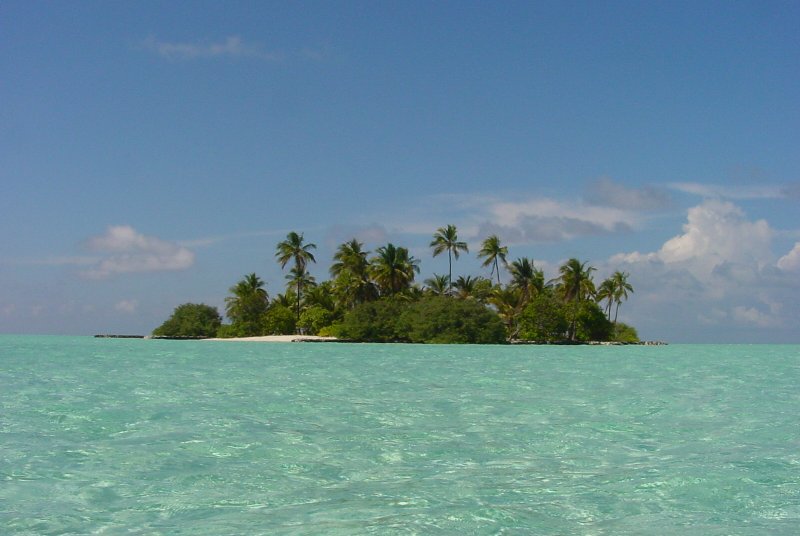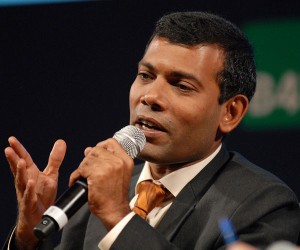The Indian Ocean nation of the Maldives is one of a number of countries threatened by rising sea levels, and the president is looking to Australia for a potential new home.
The 350,000 residents of the Maldives, a group of picture-perfect tropical islands found to the south of India, would seem to have claimed their own little slice of heaven. A hotspot for luxury travel, many of this sunny archipelago’s islands are dotted with upscale resorts, with 500,000 visitors each year flocking to enjoy the Maldives’ unique beauty. However, there is trouble in paradise, according to the country’s President, Mohamed Nasheed, who is busy preparing for a shocking scenario – that one day the very country of the Maldives will no longer exist.
This is why President Nasheed, a long-time advocate for climate change issues, has taken a radical step; drawing from the country’s tourism tax dollars, he has established a sovereign wealth fund that will be used to purchase land in countries not anticipated to be severely impacted by the changing environment. Fearing that the Maldives’ small, low-lying islands – an astonishing 80% of which are less than 1 metre above sea level – will be deluged by violent storms and rising ocean levels, he has said that this plan is the best alternative to having his people “living in tents like refugees” if a climate change crisis hits.
According to reports in the Australian media, President Nasheed has turned his appeals mainly towards Australia, and emphasized that the situation was grave. Doomsday scenarios projected by some climate experts like the Intergovernmental Panel on Climate Change suggest that this could be as much as 59 centimetres over the next century, enough to cause catastrophic flooding of many small island nations, including the Maldives. During an interview with the Sydney Morning Herald newspaper, he stated that life in his country was becoming difficult to sustain naturally.
The Maldives is not the only country that has felt the need to make plans in case of a deluge; tiny Tuvalu, an even smaller island country in the South Pacific, was making waves as long ago as 2001 for lobbying Australia to accept its citizens if Tuvalu vanished beneath the ocean. Australia’s Green Party has been supportive, and in 2008, discussions took place on whether Tuvalu’s 10,500 citizens could be granted emergency visas if necessary.
Kiribati, another South Pacific island chain, has also been on the radar of climatologists for its dim prospects; Harvard University biological oceanographer James J. McCarthy dubbed it “the canary in the coal mine” of civilizations that may soon disappear due to climate change. The government of Kiribati has been discussing the potential mass emigration of its 100,000 citizens with both Australia and New Zealand, and has stated the effects of rising waters are already making some of its coastal areas uninhabitable.
Even larger island countries like Fiji, with a population of more than 850,000, could be seriously impacted. While no direct link to climate change has been made, recent heavy rainstorms have battered its islands, resulting in flooding that has displaced approximately 1500 people and caused six deaths. Extreme weather events, including more frequent severe storms, are widely understood to be a dangerous component to climate change models.
In his interview, President Nasheed clarified that it was in Australia’s best interests to help threatened nations such as his, and that he was not appealing to the country’s sense of benevolence. He asked, “…if everyone else around Australia is so poor and unable to fend for themselves and have a decent life, would that necessarily make life in Australia any better? Would that be the castle that you can defend?” President Nasheed continued, “…I think it’s really quite necessary for Australians and for every rich country to understand that this is unlike any other thing that’s happened before.”
Read more: Sydney Morning Herald




